(a) Find the current in the 20(Ω)resistor shown in figure.(b)If a capacitor of capacitance 4(mu)F is joined between the point A and B,what would be the electrostatic energy stored in it in steady state?
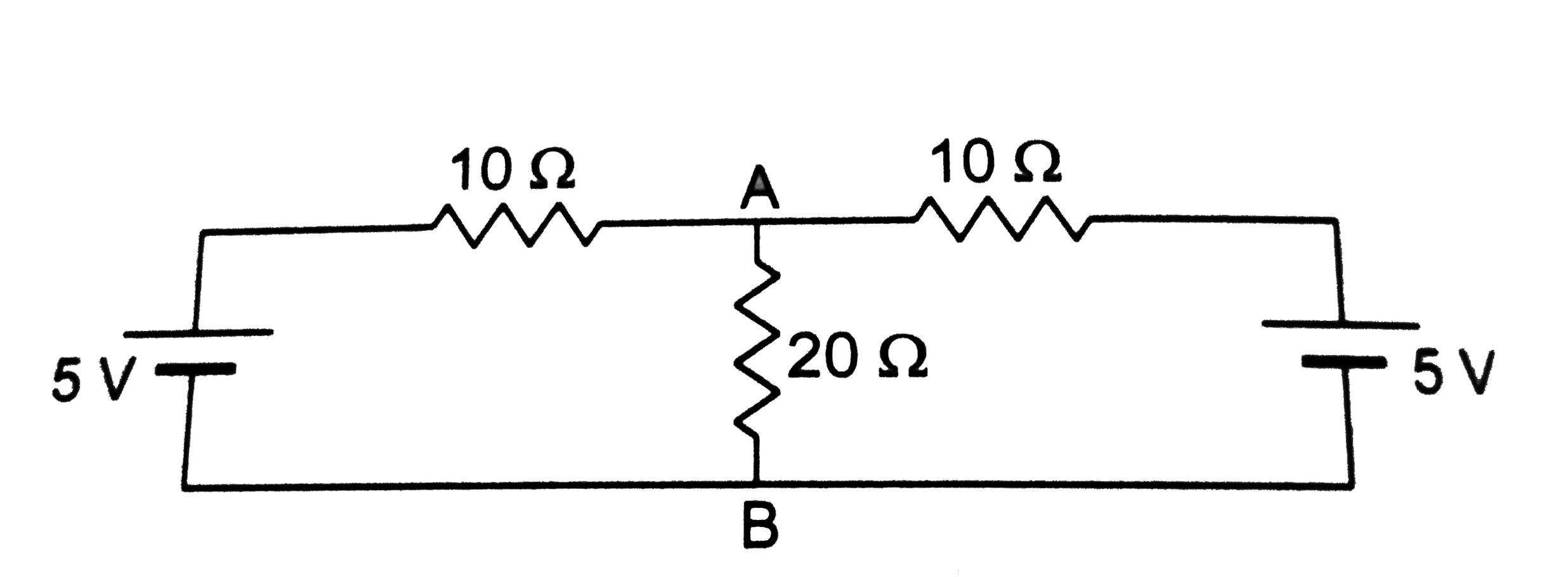 Solution in Gujrati
Solution in Gujrati
Taking circuit abeda,
10i+20(i−i1)−5=0
⇒10i+20i−20i−5=0
⇒30i−20i1−5=0
Taking circuit abfca,
20(i−i1)−5−10i1=0
⇒20i−10i1−20i1−5=0
⇒20i−30i1−5=0
(30i−20i1−5=0)2
(20i−30i1−5=0)3
(90−40)i1=0
⇒i1=0
⇒30i−5=0
i=530=0.16A
Currentthrough20Ωis0.16A.
Topper's Solved these Questions
- ELECTRIC CURRENT IN CONDUCTORSBOOK - HC VERMACHAPTER - ELECTRIC CURRENT IN CONDUCTORSEXERCISE - Objective 2
9 Videos
- DISPERSION AND SPECTRABOOK - HC VERMACHAPTER - DISPERSION AND SPECTRAEXERCISE - Exercises
11 Videos
- ELECTRIC CURRENT THROUGH GASESBOOK - HC VERMACHAPTER - ELECTRIC CURRENT THROUGH GASESEXERCISE - Exercises
23 Videos
Similar Questions
Electrons are emitted by a hot filament and are accelerated by an electric field as shown in figure .The two stops at the left ensure that the electron beam has a uniform cross-section.
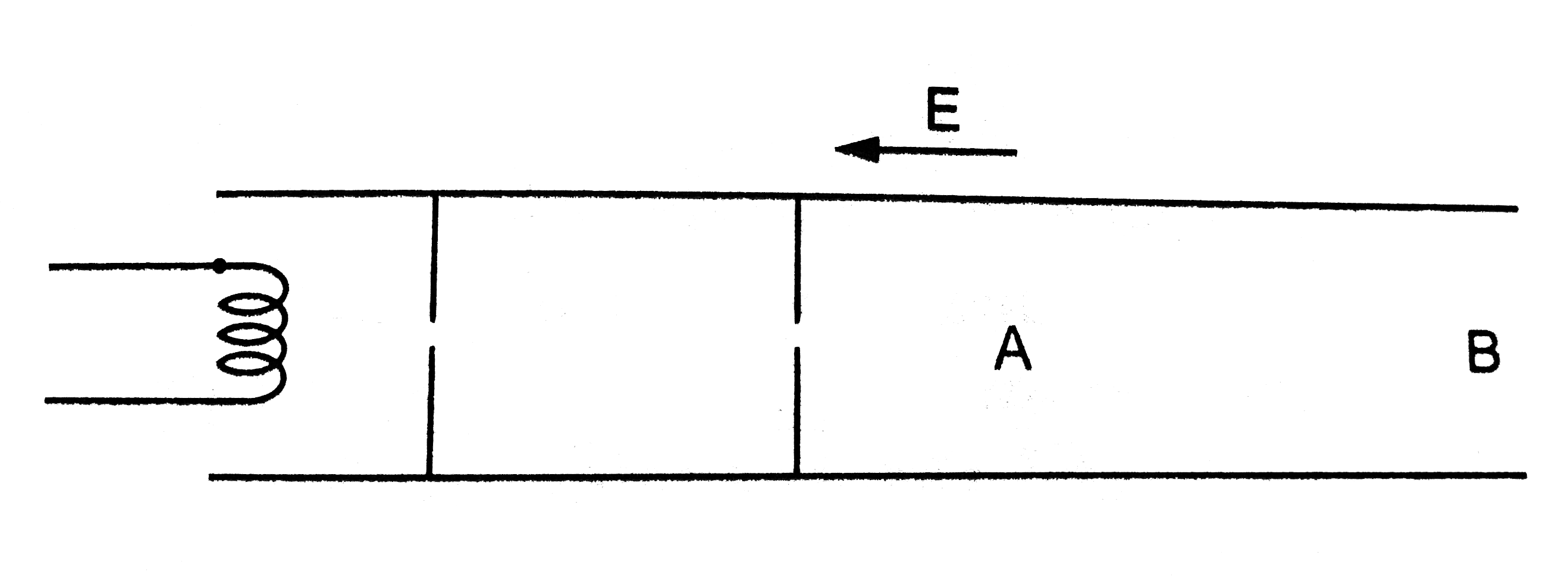
View SolutionA flint glass prism and a crown glass prism are to be combined in such a way that the deviation of the mean ray is zero. The refractive index of flint and crown glasses for the mean ray are 1.620 and 1.518 respectively. If the refracting angle of the flint prism is 6.0∘, what would be the refracting angle of the crown prism ?
View SolutionA discharge tube contains helium at a low pressure. A large potential difference is applied across the tube. Consider a helium atom that has just been ionized due to the detachment of an atomic electron. Find the ratio of the distance travelled by the free electron to that by the positive ion in a short time dt after the ionization.
View Solution(a) Find the current in the 20(Ω)resistor shown in figure.(b)If a capacitor of capacitance 4(mu)F is joined between the point A and B,what would be the electrostatic energy stored in it in steady state?

View SolutionFor the circuit shown in figure, find
(a) the initial current through each resistor
(b) steady state current through each resistor
(c) final energy stored in the capacitor
(d) time constant of the circuit when switch is opened.
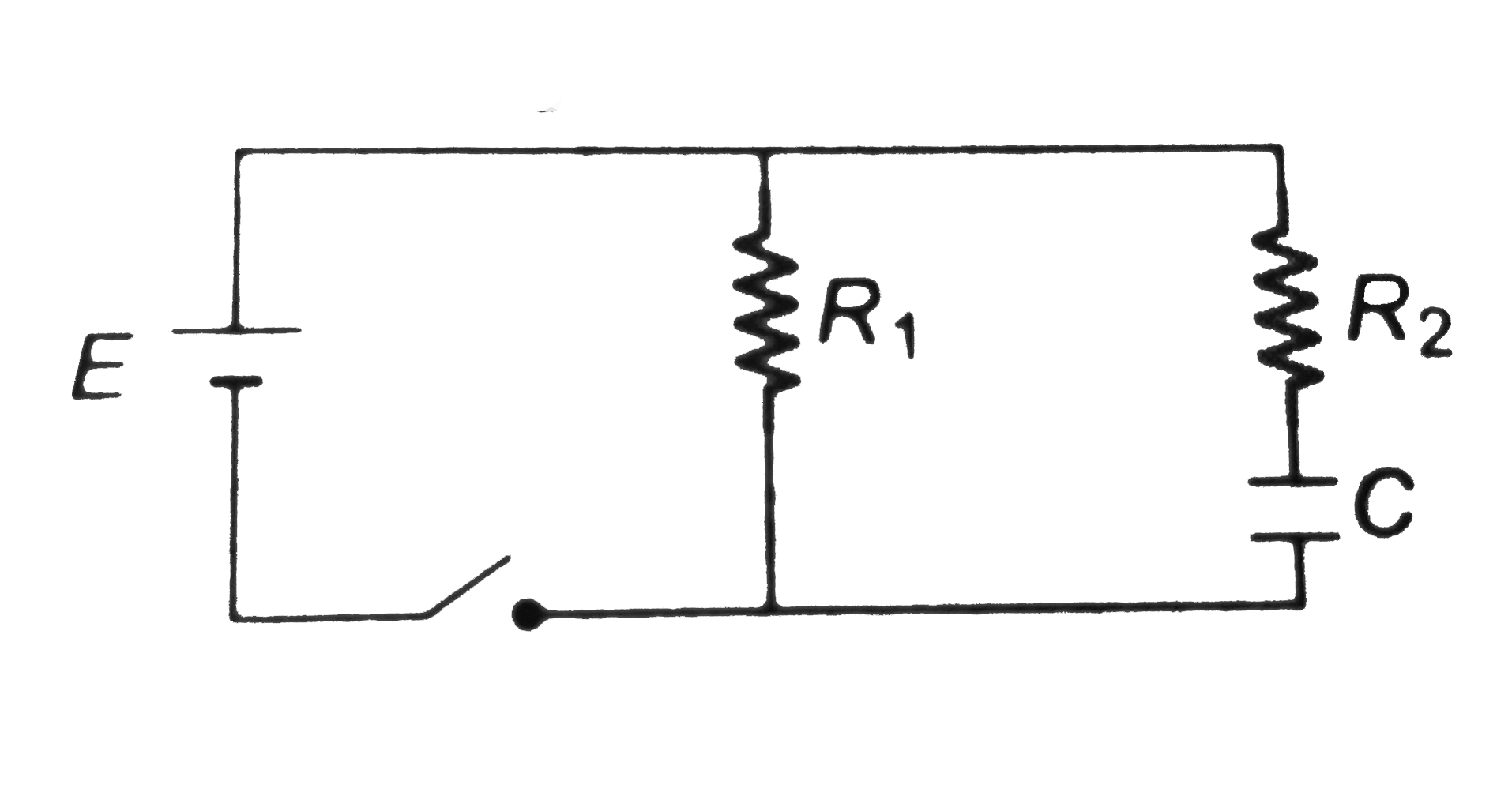
View SolutionThe capacitors shown in figure. Is in steady state. The energy stored in the capacitor is
View SolutionIn the circuit shown in figure-3.395, find the charges on capacitors of capacitances 5μFand3μF, in steady state.
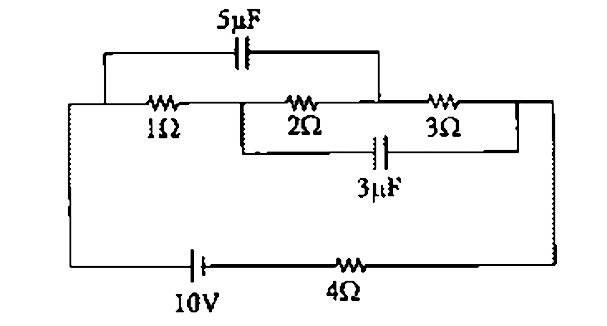
View SolutionThe steady state current in a 2Ω resistor when the internal resistance of the battery is negligible and the capacitance of the condenser is 0.1μF is
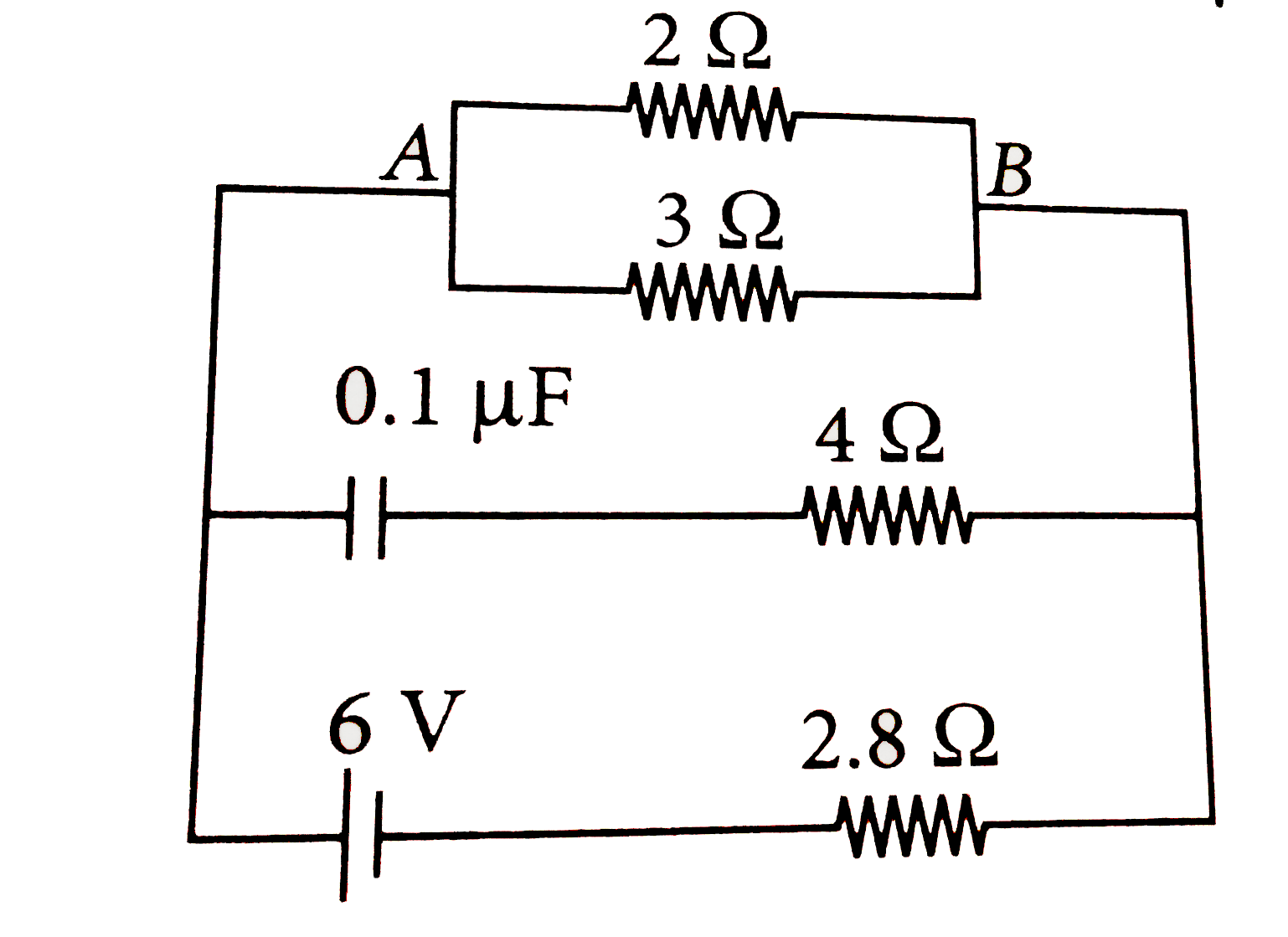
View Solution(a) Find the current in the 20Ω resistor shown in figure.
(b) If a capacitor of capacitance 4μF is joined between the points A and B, what would be the electrostatic energy stored in it in steady state ?

View Solutionसंलग्न चित्र a में ज्ञात कीजिये- a बिंदु a तथा b के बीच तुल्य धारिता, (b ) 2μF धारिता के संधारित्र की प्लेटों के बीच विभवांतर , ( c ) 3μF धारिता के संधारित्र पर आवेश, ( d ) 20μF धारिता के संधारित्र में संचित्र ऊर्जा, ( E ) 12μF धारिता के संधारित्र में संचित ऊर्जा।
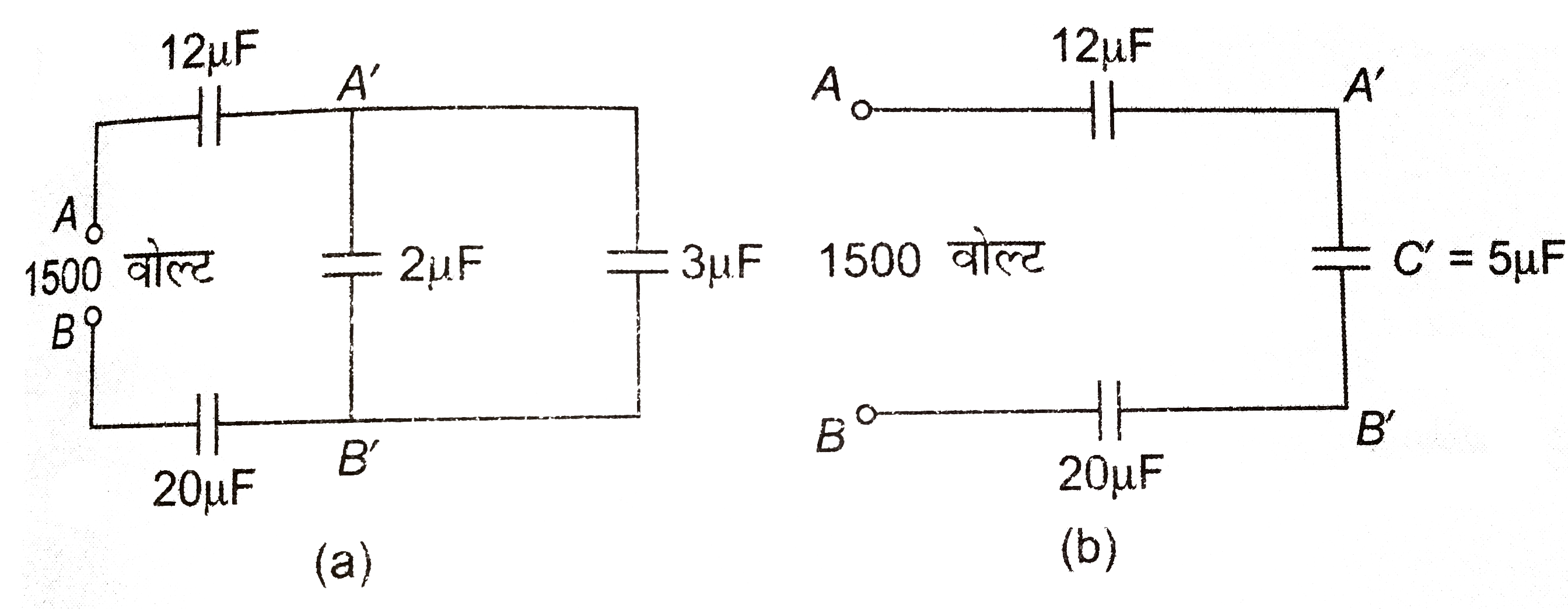
View SolutionWhat is the energy stored in the capacitor between terminals a and b of the network shown in the figure ? (Capacitance of each capacitance C=1muF )
View SolutionFour capacitors each of 8 mu F , are joined as shown in the figure. The equivalent capacitance between the points A and B is
View Solution(a) Find the current in the 20(Ω)resistor shown in figure.(b)If a capacitor of capacitance 4(mu)F is joined between the point A and B,what would be the electrostatic energy stored in it in steady state?

View SolutionThe steady state current in a 2 Omega resistor when the internal resistance of the battery is negligible and the capacitance of the condenser is 0.1 mu F is
View SolutionWhat is the energy stored in the capacitor between terminals a and b of the network shown in the figure ? (Capacitance of each capacitance C=1muF )
View SolutionWhat is the energy stored in the capacitor between terminals a and b of the network shown in the figure ? (Capacitance of each capacitance C=1μF)
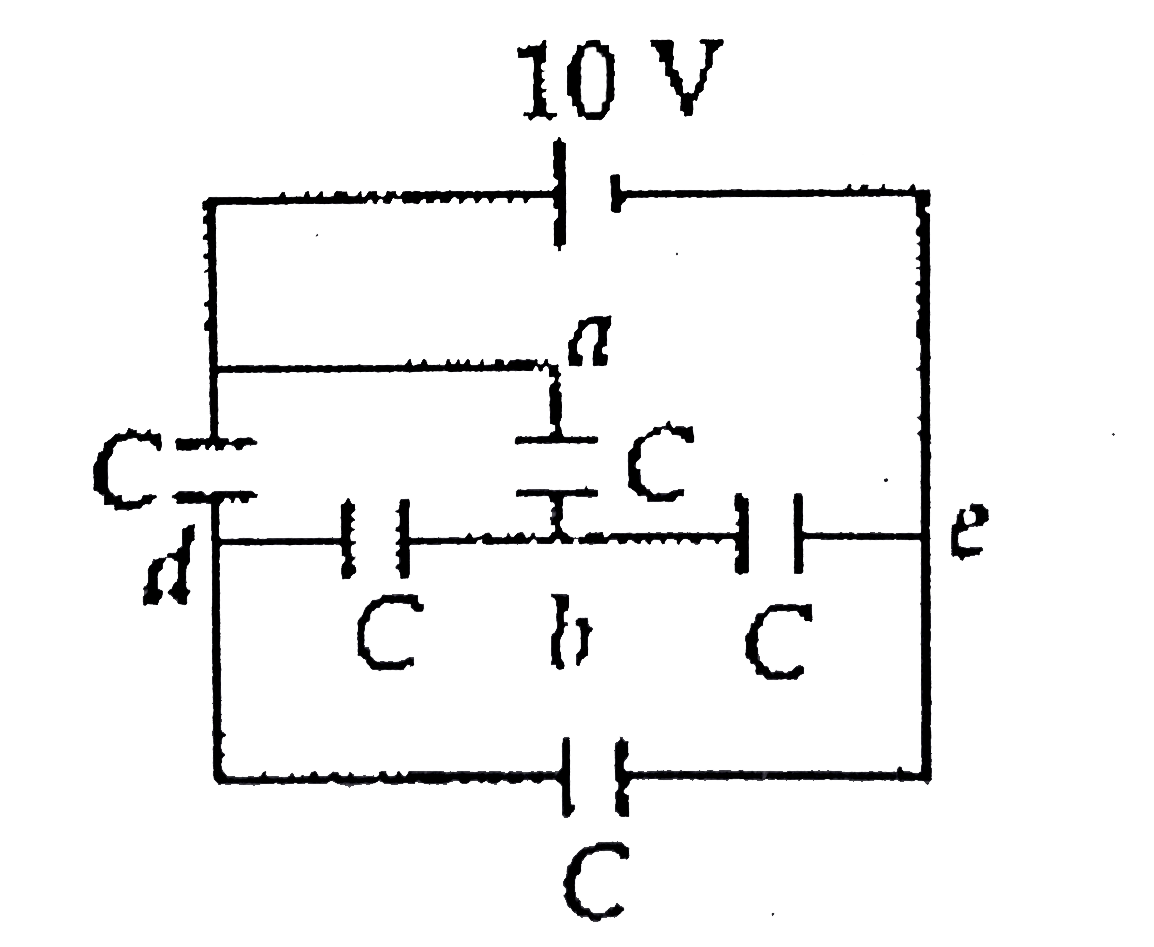
View Solution
